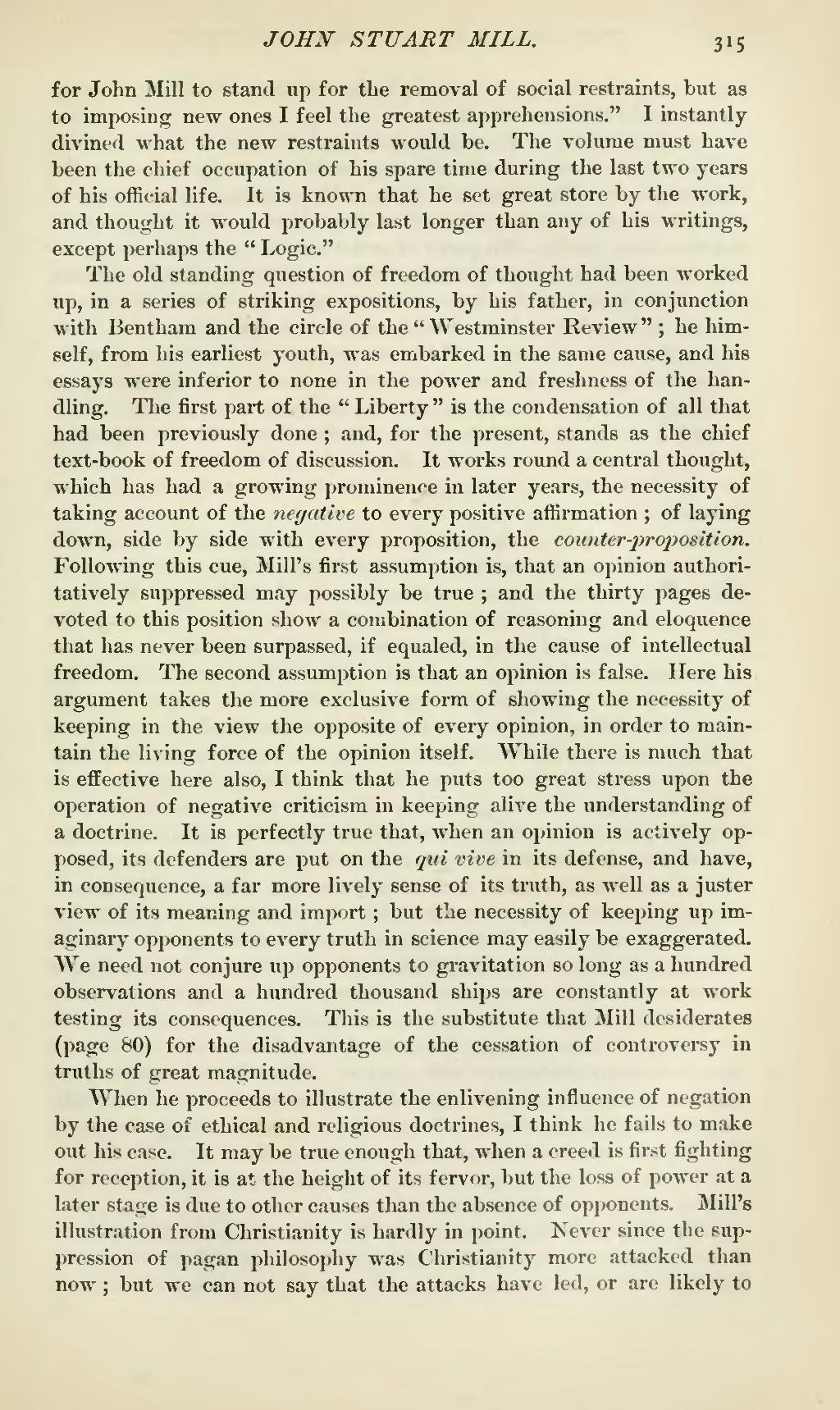for John Mill to stand up for the removal of social restraints, but as to imposing new ones I feel the greatest apprehensions." I instantly divined what the new restraints would be. The volume must have been the chief occupation of his spare time during the last two years of his official life. It is known that he set great store by the work, and thought it would probably last longer than any of his writings, except perhaps the "Logic."
The old standing question of freedom of thought had been worked up, in a series of striking expositions, by his father, in conjunction with Bentham and the circle of the "Westminster Review"; he himself, from his earliest youth, was embarked in the same cause, and his essays were inferior to none in the power and freshness of the handling. The first part of the "Liberty" is the condensation of all that had been previously done; and, for the present, stands as the chief text-book of freedom of discussion. It works round a central thought, which has had a growing prominence in later years, the necessity of taking account of the negative to every positive affirmation; of laying down, side by side with every proposition, the counter-proposition. Following this cue, Mill's first assumption is, that an opinion authoritatively suppressed may possibly be true; and the thirty pages devoted to this position show a combination of reasoning and eloquence that has never been surpassed, if equaled, in the cause of intellectual freedom. The second assumption is that an opinion is false. Here his argument takes the more exclusive form of showing the necessity of keeping in the view the opposite of every opinion, in order to maintain the living force of the opinion itself. While there is much that is effective here also, I think that he puts too great stress upon the operation of negative criticism in keeping alive the understanding of a doctrine. It is perfectly true that, when an opinion is actively opposed, its defenders are put on the qui vive in its defense, and have, in consequence, a far more lively sense of its truth, as well as a juster view of its meaning and import; but the necessity of keeping up imaginary opponents to every truth in science may easily be exaggerated. We need not conjure up opponents to gravitation so long as a hundred observations and a hundred thousand ships are constantly at work testing its consequences. This is the substitute that Mill desiderates (page 80) for the disadvantage of the cessation of controversy in truths of great magnitude.
When he proceeds to illustrate the enlivening influence of negation by the case of ethical and religious doctrines, I think he fails to make out his case. It may be true enough that, when a creed is first fighting for reception, it is at the height of its fervor, but the loss of power at a later stage is due to other causes than the absence of opponents. Mill's illustration from Christianity is hardly in point. Never since the suppression of pagan philosophy was Christianity more attacked than now; but we can not say that the attacks have led, or are likely to
